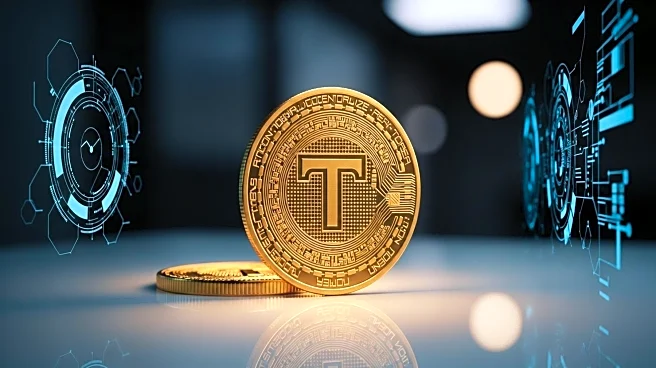What's Happening?
President Trump's family has launched a new cryptocurrency venture, World Liberty Financial, which has begun trading a token named WLFI. This development marks a significant shift from Trump's previous stance on cryptocurrencies, which he once labeled a scam. The launch has reportedly generated $5 billion in paper wealth for the Trump family. Trump's administration has appointed crypto-friendly officials, easing regulations on the industry. Critics, including Senator Elizabeth Warren, have raised concerns about potential conflicts of interest and the ethical implications of Trump's business dealings while in office.
Why It's Important?
The Trump family's involvement in the crypto industry underscores the potential for personal business interests to intersect with public policy. The administration's favorable stance towards cryptocurrencies could influence regulatory practices, benefiting Trump's ventures. This situation raises ethical questions about the separation of personal and presidential interests, with implications for transparency and accountability. The family's crypto activities may impact investor confidence and the broader perception of digital assets in the U.S., highlighting the need for clear guidelines on conflicts of interest.
What's Next?
As the WLFI token continues to trade, the Trump family may seek to capitalize on their holdings, depending on market conditions. The administration's crypto-friendly policies could attract more investment into the U.S. market, but increased scrutiny from ethics watchdogs and political opponents is likely. Legislative efforts may emerge to address potential conflicts of interest and ensure fair market practices.
Beyond the Headlines
The intertwining of political influence and digital asset markets could affect public trust in both sectors. The situation raises questions about the role of cryptocurrencies in political financing and international relations, given the global nature of crypto investments. Long-term implications may include shifts in the perception of digital currencies and their integration into the political and economic landscape.









